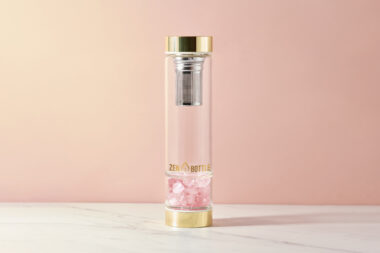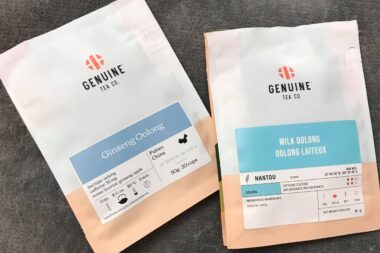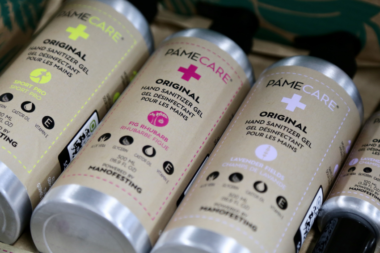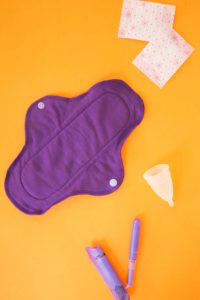 Written by Arubiyyah Qadir Balouch
Written by Arubiyyah Qadir Balouch
International women’s day is celebrated worldwide but in one of South Asia’s country, women still struggle with dealing with the taboos of their traditions, and that country is Pakistan. Pakistan is a country where a woman prime minister was elected at one point, yet the women of Pakistan are fighting for a basic system of health. The topic that no one wants to talk about is Menstruation, even though it is the very thing that makes a girl a woman, a woman who goes on to get married and have children and yet the topic of menstruation is never discussed openly due to the taboo association with it being an unclean and dirty event in a woman’s life.
Islam teaches cleanliness of the body and soul
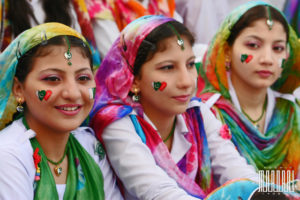 Menstruation is always a taboo topic in the South Asian subcontinent. In Pakistan, where 97% of the population are Muslims, and even though in the religion itself it says to stay clean both hygienically and spiritually, the women of Pakistan still suffer in silence. The main cause of this suffering is the cultural and sometimes false religious restrictions on women when they are on their periods.
Menstruation is always a taboo topic in the South Asian subcontinent. In Pakistan, where 97% of the population are Muslims, and even though in the religion itself it says to stay clean both hygienically and spiritually, the women of Pakistan still suffer in silence. The main cause of this suffering is the cultural and sometimes false religious restrictions on women when they are on their periods.
Myths about periods due to old traditions
The topic itself is very embarrassing to discuss in general and men in no ways or means are ever part of it. Some of the myths around menstruating women are not taking a bath for all the 5-7 days, not touching cold water or drinking cold water and not eating spicy foods. The main culprits of such situations are the parents who don’t believe in discussing periods/menses with their daughters. So, when their daughter gets her periods its usually a surprise for her or sometimes days might go by before she thinks it’s an issue worth talking to her mother about.
Withholding information about periods from girls!
According to some women’s rights activists, periods are treated as a taboo subject and surrounded by mystery. In Pakistan, UNICEF has warned that in some cases information about menstruation has deliberately been withheld from women as a “means of protecting their chastity”.
The menstruating adolescent girls in many parts of Pakistan believe to be influenced by cultural and religious restrictions for women when on their period especially the local traditions.
Often these beliefs are misconceptions and myths resulting from the deliberate withholding of information about menstruation for girls prior to their first period, as a means of protecting their purity. This in turn negatively impacts their physical and emotional health. There is no sex-education in schools and the topic is rarely discussed—even between women—at homes in northern Pakistan, a particularly conservative part of the country. According to a 2017 UNICEF survey, half of young Pakistani women had no knowledge of menstruation before their periods started. Teenage girls admitted that they thought they had cancer or a very serious illness that made them bleed. 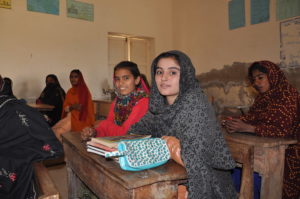
Using rags and cloths and being susceptible to diseases!
Traditionally women have used rags and cloth to soak up their menstrual blood, but the stigma around periods and a lack of reproductive education means hygiene standards are poor and many contracted infections. As with other areas of rural Pakistan, menstruating women were viewed as unclean and limited in what they were able to do. In addition, female family members often shared the same menstrual rags, increasing the risk of contracting urinary and reproductive tract infections. The use of rags negatively impacted their physical and emotional health. According to some women’s rights activists, according to Bushra Ansari from Aga Khan Rural Support Program (AKRSP) the taboo surrounding periods meant many were ashamed to dry them outside, unaware that damp cloths are a breeding ground for bacteria.
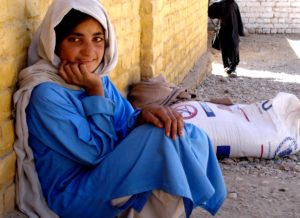 Some women rights activists trained local women to make disposable sanitary pads, made of cotton, plastic, and cloth, by the Aga Khan Rural Support Program (AKRSP)—an NGO working with UNICEF—in a scheme that aims to change attitudes to women’s health. These are some of the steps that are taken by these NGO’s to help educate girls and women about the use of sanitary pads and to refrain from using the old age tradition of using rags.
Some women rights activists trained local women to make disposable sanitary pads, made of cotton, plastic, and cloth, by the Aga Khan Rural Support Program (AKRSP)—an NGO working with UNICEF—in a scheme that aims to change attitudes to women’s health. These are some of the steps that are taken by these NGO’s to help educate girls and women about the use of sanitary pads and to refrain from using the old age tradition of using rags.
The gap between the rich and poor!
In rich cities the rich have access to feminine hygiene products but the poor have the hardest time. Pakistan ranks 148th out of 149 by the World Economic Forum for gender equality and the gap between the rich and the poor is vast. Pakistan being a patriarchal Muslim country has a tough road for women in general and hence taboo subjects like menses are looked down upon in general. Sanitary pads are usually expensive as only the rich can afford it. Since the subject is embarrassing and women feel shy asking shopkeepers for sanitary pads and sometimes if they do have to buy it, they prefer buying them in the night time or in different neighborhoods. These sanitary pads are usually wrapped in brown paper or opaque papers rather than regular plastic bags.
are looked down upon in general. Sanitary pads are usually expensive as only the rich can afford it. Since the subject is embarrassing and women feel shy asking shopkeepers for sanitary pads and sometimes if they do have to buy it, they prefer buying them in the night time or in different neighborhoods. These sanitary pads are usually wrapped in brown paper or opaque papers rather than regular plastic bags.
Some hope!
Sex education is barely taught in schools, however after 20 years of battling some introduction is done in Karachi, Sindh. Some 28 percent of women surveyed in 2017 by UNICEF indicated that they had missed school or work because of stomach pain or worry over staining their clothes.
Women, some 80 of them, who are working to make sanitary pads are confident things will change in the coming years. Some believe that they have taken the first steps of making people aware of the stigma associated with menstruation. Even though the change is very slow as traditions are difficult to change but there is hope!



